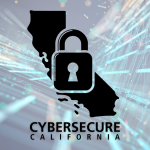Tax season isn’t just busy for accountants. It’s also peak hunting season for cybercriminals, and California’s businesses are a prime target. With sensitive data flying between inboxes, tight deadlines creating stress, and hackers getting smarter, the risks grow each year.
Cybersecure California is here to help you stay a step ahead. While we don’t sell cybersecurity services, our mission is to raise awareness and connect business owners to trusted strategies and resources that keep systems secure and compliant.
Here’s what to watch for and how to protect your business this tax season.
Why Tax Season Is a Goldmine for Cybercriminals
1. Sensitive Data Is in Motion
Tax filings require the exchange of confidential financial, employee, and business information — internally and with outside providers like CPAs and payroll firms. This creates multiple attack surfaces, especially via email.
2. Deadlines Lead to Oversights
Under pressure, even smart people click without thinking. Hackers thrive on rushed environments where phishing emails and spoofed links slip through unchecked.
3. Your Inbox Becomes a Hot Zone
Tax season means a flood of emails — forms, notices, invoice requests. Attackers use lookalike domains, logos, and fake urgency to trick you into giving up access.
4. Scams Are Getting More Sophisticated
Hackers impersonate the IRS, software companies, banks, and even your bookkeeper to harvest credentials or redirect payments.
Top Threats to Watch Out For
- Phishing Emails: Fake messages from the “IRS” or “payroll services” that try to steal credentials or deploy malware.
- Fraudulent Invoices: Scammers requesting payment for fake services or unpaid balances.
- Ransomware: Hackers encrypt your financial data and demand money to release it.
- Social Engineering: Calls or emails from someone pretending to be a vendor, tax preparer, or colleague to extract sensitive information.
How to Protect Your Business This Tax Season
1. Educate Your Team
Make sure your staff knows what to look for:
- Hover over links to check URLs before clicking.
- Be skeptical of “urgent” or “unusual” payment requests.
- Report anything suspicious—don’t ignore gut instinct.
2. Use Secure File Sharing Tools
Avoid sending sensitive files via unencrypted email. Use portals, encrypted platforms, or secure cloud services with role-based access.
3. Enable Multifactor Authentication (MFA) Everywhere
If a password is compromised, MFA can be the barrier that stops an attacker in their tracks. Require it on financial systems, email, and any software tied to your business finances.
4. Run a Cybersecurity Checkup
Now’s the time to assess your defenses:
- Are your systems fully patched?
- Is your backup tested and restorable?
- Are employees using secure devices?
Work with a trusted IT provider to find and fix vulnerabilities before hackers do.
5. Verify Before You Pay
If you receive a payment request, especially one involving account changes or urgency, confirm it using a second method (like a phone call). Never rely solely on email.
Don’t Let Hackers Win This Tax Season
Cybercriminals count on distraction, fatigue, and confusion. But with a few smart moves, your business can stay secure while staying focused on what matters—filing a clean return and moving forward.
🔒 Want help identifying your biggest risks?
Cybersecure California recommends connecting with a trusted local expert. One such partner is Synergy Computing, Inc., a Santa Barbara-based IT and cybersecurity firm offering risk assessments tailored to California’s compliance environment.
👉 Click here to schedule your FREE Cyber Risk Assessment with Synergy Computing
They’ll evaluate your systems, identify gaps, and help you build a stronger cybersecurity posture.

